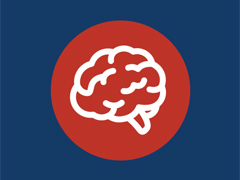The Emotional Effects of Debt

According to the American Psychological Association, 72% of Americans are stressed about money at least occasionally. And 22% feel extremely stressed about their finances. These numbers are concerning because financial stress is linked to health problems like depression and sleep deprivation. Learn about the effects of financial stress on your health and what you can do to prevent or reduce it.
Pressure points
Once you start worrying about something that is emotionally charged, it causes an involuntary spike in the nervous system, which can affect everything from muscle tension to anxiety. It can also possibly lead to an unhealthy amount of sleep deprivation. To avoid a tailspin at bedtime, don’t self-medicate with sleep aids or alcohol. Instead, try to turn those running thoughts into positives. You can try to view this time as an opportunity to rethink your goals and take on new challenges.
Heavy hearts
In a study published in the journal Diabetes Care, researchers found that people who reported stressful work or money-related events had an increased risk for heart disease, diabetes and stroke. Don’t be afraid to talk to your doctor about your stress. Many patients aren’t counseled until after suffering from a heart-related event. But an ounce of prevention can be worth a pound of cure.
Mind over money matters
Your finances and the amount of stress you feel as a result can cause you to engage in bad behaviors —from overeating to smoking to experiencing feelings of depression. According to a 2014 American Psychological Association survey, 33% of Americans reported eating unhealthy foods or eating too much to deal with stress. During times of anxiety like this, it’s important to remember that you might not be the only person going through it. You can cope actively by sharing your worries with others to help put things into perspective.


